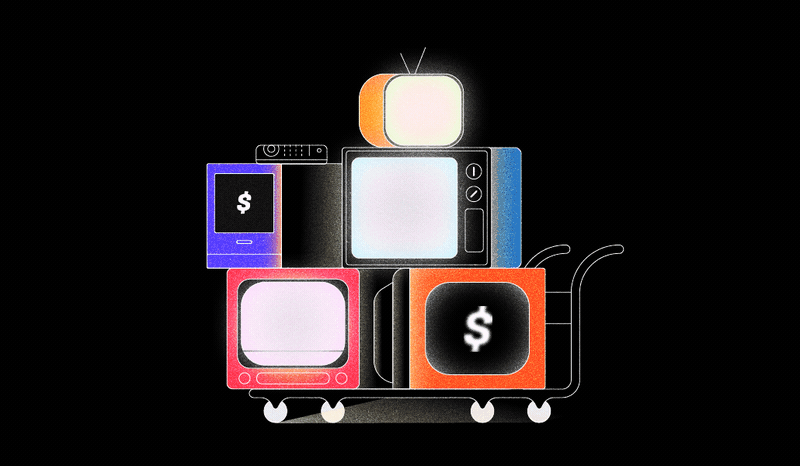Secure your place at the Digiday Media Buying Summit in Nashville, March 2-4
Influential partners with Adomni to push creator content beyond social media to digital OOH

Influencer marketing firm Influential has teamed up with ad platform Adomni to boost its creator content in digital out-of-home spaces, Digiday has learned.
With the partnership, Influential’s influencer marketing campaigns will get pushed to Adomni’s network of 700,000 programmatically connected digital screens (think malls, gas stations and billboards). It allows creators to get more exposure and reach beyond their social media outlets — a move that many are exploring as digital OOH storms back from a pandemic-induced drop in viewership.
“We are able to see what content performs best before bringing it to another medium, and the cost of creating social content is considerably less expensive,” said Ryan Detert, CEO of Influential.
The companies said they have already started putting major influencers on custom campaigns, including Charli and Dixie D’Amelio, Shereen Pavlides and TyBott. Adomni has digital screens across the U.S., Canada, Europe and Australia, and Influential has adopted its planning and activation platform to launch creator ad campaigns. This network of screens offers the potential to attract some 50 billion impressions per month, according to Jonathan Gudai, CEO of Adomni.
“Digital billboards have been the most popular to date due to their size, and [billboards are typically seen by] consumers and creators [as] being expensive and unobtainable,” Gudai said.
Gudai pointed to examples including urban panels like LinkNYC performing well, due to the exposure on streets in a major market. The panels also support vertical video, which means they lend themselves to displaying social media content. Shopping malls are similarly attractive to creators and consumers, he added, because they enable people to capture video at kiosks and then share them on social platforms.
It makes sense for influencers to seek out growth beyond social apps as they look for more ways to connect with followers, explained Bea Iturregui, vp of creator and brand partnerships at influencer marketing agency Cycle Media. Many brands are also trying to secure engagement in more digital formats and use an influencer’s cultural relevance to drive sales.
“Through OOH, influencers can continue to reach new followers while further engaging with their existing fanbase,” Iturregui said. “Followers will show support to their favorite influencers because they feel they’ve been a part of the influencer’s journey and success.”
Another advantage as influencers expand into digital OOH is that the content becomes local and allows the audience to connect with the community. Katie Kelly, director of programmatic at performance-driven agency Code3, said she expects to see more influencers across other platforms beyond social. Other spaces include restaurants to promote certain foods, partnerships on brand websites and hosting podcasts.
“I think we also see celebrities, YouTube and TikTok stars gaining popularity in advertisements on TV, so DOOH would be a natural progression — especially in malls in front of specific stores or even stores like Target or Whole Foods in front of specific products,” Kelly said.
Detert added that injecting popular social content into digital screens in people’s surroundings allows influencers and marketers to have “sequential messaging across platforms” — reaching people with a single sentiment through diversified messages. Ultimately, it is about reaching consumers multiple times and shortening the purchase cycle, he added.
“Have that same shopper get primed with creator content on a billboard, then a grocery store screen, CTV, and ending with a call-to-action on an influencer post to track attribution,” Detert said. “This is where the industry is headed as brands look for a media mix that is scaled and measurable.”
More in Media Buying

Future of TV Briefing: CTV identity matches are usually wrong
This week’s Future of TV Briefing looks at a Truthset study showing the error rate for matches between IP and deterministic IDs like email addresses can exceed 84%.

Canadian indie Salt XC expands its U.S. presence with purchase of Craft & Commerce
Less than a year after buying Nectar First, an AI-driven specialist, Salt XC has expanded its full-service media offerings with the purchase of Craft and Commerce.

Ad Tech Briefing: Publishers are turning to AI-powered mathmen, but can it trump political machinations?
New ad verification and measurement techniques will have to turnover the ‘i just don’t want to get fired’ mindset.








